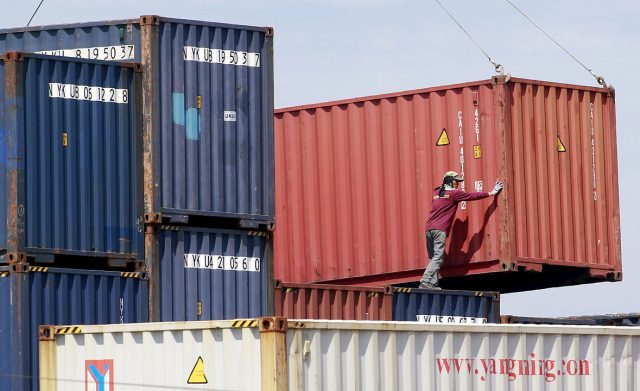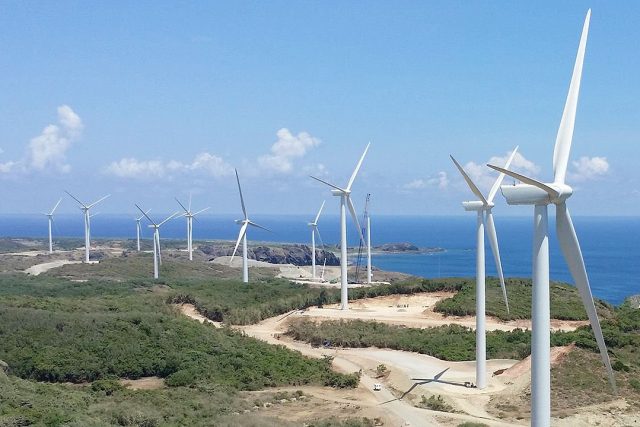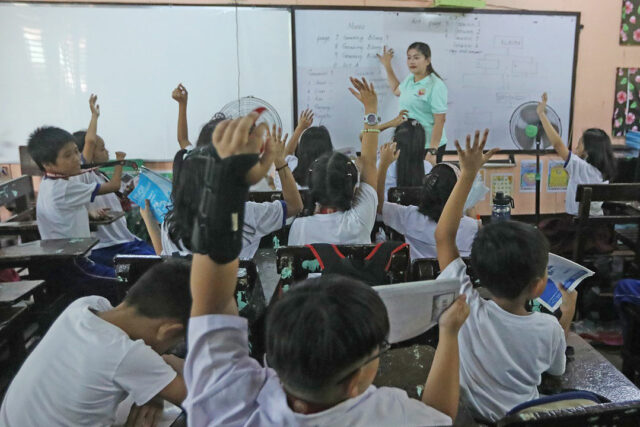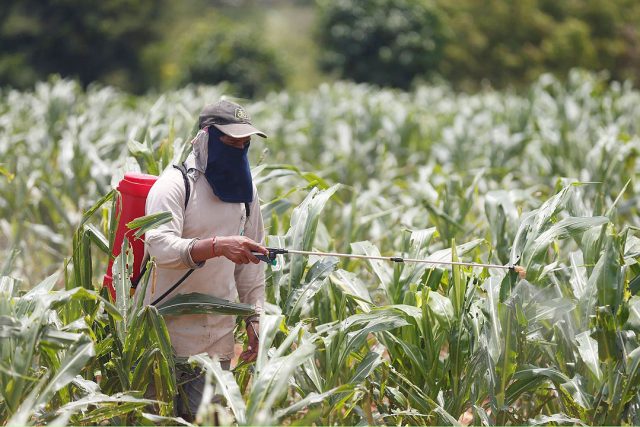By Beatriz Marie D. Cruz and John Victor D. Ordoñez, Reporters
PHILIPPINE congressmen on Tuesday stripped several agencies including the Office of the Vice President (OVP) of their confidential funds, transferring P1.23 billion worth of these funds to security agencies amid worsening tensions with China.
“The Office of the Vice President and Departments of Education (DepEd), Information and Communications, Agriculture and Foreign Affairs are getting zero confidential funds under the 2024 General Appropriations bill,” Marikina Rep. Stella Luz A. Quimbo told a news briefing.
The decision showed there are tensions within the ruling coalition involving key players like Vice-President Sara Duterte-Carpio and Speaker Martin G. Romualdez, Arjan P. Aguirre, who teaches political science at the Ateneo de Manila University, said in a Facebook Messenger chat.
“It was a political masterstroke to indirectly attack VP Sara under the guise of a national security imperative brought by the West Philippine Sea territorial disputes,” he said.
Ms. Duterte-Carpio is seeking confidential funds worth P500 million for her office and P150 million for DepEd, which she also heads.
Last week, she said anyone who opposes confidential funds opposes peace. “Whoever opposes peace is an enemy of the nation.”
Mr. Aguirre said Ms. Duterte-Carpio’s demand for confidential funds would affect her public image. “She is now painted as a privileged and powerful person who cannot wait to win the presidential election in 2028. This is something that is in stark contrast with how the Dutertes want themselves to be perceived by the public — disinterested in power and wealth.”
Under the proposed changes to the 2024 budget, P300 million in intelligence funds will be given to the National Intelligence Coordinating Agency (NICA), P100 million to the National Security Council (NSC) and P200 million to the Philippine Coast Guard (PCG).
The Transportation department will get P381.8 million for airport development and expansion of the air strip on Thitu Island, a Philippine-occupied territory in the Spratlys that it calls Pag-asa.
“The bulk of the funding will be channeled to agencies in charge of ensuring national security especially in the West Philippine Sea,” Ms. Quimbo said, referring to areas of the South China Sea within the country’s exclusive economic zone.
‘VOLATILE SITUATION’
The House also allotted P1 billion to the Philippine Fisheries Authority so it can build fishery and post-harvest facilities in Palawan and the Spratly Islands.
“The volatile situation in the West Philippine Sea calls for immediate and decisive action to protect our national sovereignty,” Ms. Quimbo said.
Instead of confidential funds, allocations under agencies’ maintenance and other operating expenses now include P30 million for the Bureau of Fisheries and Aquatic Resources (BFAR), P25 million for the Department of Information and Communications Technology (DICT), P30 million for the Department of Foreign Affairs, P50 million for the Office of the Ombudsman and P150 million for DepEd’s aid to students and teachers.
The House committee also allotted an additional P20 billion for the Agriculture department’s rice subsidy program and P40 billion for the National Irrigation Administration solar-driven irrigation pumps.
The Philippine Coconut Authority will get P2 billion more for seed planting, and P1.5 billion was earmarked for African Swine Fever vaccines.
“The main goal was to rationalize the allocation of resources to fight inflation, and to invest in human capital and our country’s future,” Ms. Quimbo said.
Congressmen also allocated P43.9 billion in medical aid and P1 billion for poor patients at the Philippine General Hospital.
They also allotted P35 billion in aid for the Social Welfare department and P17.5 billion for the Labor department’s jobless and internship programs.
The Commission on Higher Education will get P17.1 billion for its financial assistance program, while the Technical Education and Skills Development Authority (TESDA) will receive P10.4 billion.
The Senate is still conducting hearings on their version of the budget, which it expects to approve next month.
Meanwhile, Senator Francis N. Tolentino moved to increase the budget of the Department of Public Works and Highways (DPWH) so it could build military infrastructure including those in the South China Sea.
“I think they (defense agencies) deserve to have a bigger chunk of the pie,” he told a hearing on the DPWH budget.
Public Works Secretary Manuel M. Bonoan said P3.8 billion of the agency’s P822.2-billion budget for next year would be used to improve facilities of the Armed Forces of the Philippines. This is P6 billion lower than this year’s allocation.
“The Department of National Defense (DND) will endorse to us facilities that it would want to be incorporated in its programs,” he said.
The Philippines is planning to replace a dilapidated ship that it grounded at Second Thomas Shoal in 1999 with a permanent structure, Armed Forces of the Philippines Western Command chief Alberto Carlos told reporters last month.
Tensions between the Philippines and China have worsened after the latter’s coast guard fired water cannons at Philippine vessels trying to deliver food and other supplies to the grounded BRP Sierra Madre.
Philippine senators have been pushing higher budgets for the Philippine Coast Guard and other security agencies.
Senator Francis “Chiz” G. Escudero earlier proposed to build a pier and lodging structures for Filipino soldiers and fishermen at Second Thomas Shoal, locally known as Ayungin.
A United Nations-backed tribunal in 2016 voided China claim to more than 80% of the South China Sea based on a 1940s map.
The five-member court said China violated Philippine sovereign rights in its exclusive economic zone by building artificial islands and for failing to prevent its citizens from fishing in the zone.
China has largely ignored the ruling, calling it void. Aside from the Philippines and China, Brunei, Malaysia, Taiwan and Vietnam also claim parts of the waterway.










